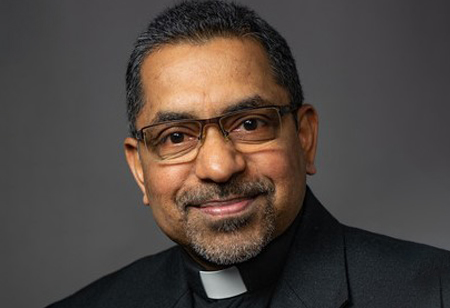-
In an exclusive interview with Asia Education Review, Dr. Charles Lasrado SJ, Principal, St Joseph's College of Commerce (Autonomous) shares his insights on industry-institute partnerships, the significance of interdisciplinary learning, importance of soft skills in commerce education and more.
Course curriculums should align with the changing industry requirements to nurture job-ready students. In light of this, how do you view the growing importance of regular industry interactions and how can industry-institute partnerships help in curriculum development?
To help students in their career development, aligning higher education and employment is crucial. For many students, the next step after their graduation will be to get gainful employment and, in this regard, the connection between the industry and educational institution is very crucial. We are an autonomous college which allows us to change the curriculum very often and we have people from the industry in our board of studies that help us to make changes in our curriculum that are aligned with the changes happening in the industry. These partnerships also enable us to understand the different competencies industry is looking for in employees both at present and also in the near future.
With organizations becoming more integrated and work environments becoming more open, mental flexibility is a crucial aspect to succeed in the corporate realm. Considering this, how do you view the growing importance of interdisciplinary learning in helping students expand their horizons?
In the last decade, the importance of interdisciplinary learning has increased rapidly in the industry. Now, professionals are required to have interdisciplinary knowledge, skills and outlook to succeed. Professionals should be adaptable and for this, having knowledge of different arenas help. We have, at the institute a compulsory paper on positive psychology and holistic studies. Here, we do group as well as individual counseling that helps students increase their self-confidence. And it helps them to improve their soft and team building skills. Also, for our students it is compulsory to take a paper from outside their field every semester so that their horizon is broadened and they are acquiring knowledge in a new discipline.
Nurturing social responsibility in students is a major challenge for many higher education institutions. How do you view the importance of community outreach programs to not only build a better sense of responsibility among students towards the society but also in developing their leadership and interpersonal skills?
For us, social outreach is a crucial facet of the education that we offer and unless you put 60 hours into social outreach activities, an undergraduate student won’t be able to graduate from the college. We have divided the social outreach programs semester wise which helps us to nurture a sense of social responsibility among our students. The students will also go to a remote village for three days and two nights as part of their social outreach programs. We have a separate outreach department taking care of these activities.
Lack of quality research is hindering the growth of Indian higher education. How can commerce colleges in the country nurture the culture of research within the campus?
Research is a weak link in many commerce colleges. To tackle this issue, during the two summer breaks, every one of our students should do two internships and submit the report. One year, the students will do social internships while in the other year, they do industrial internships. These internships should be a minimum of four weeks and at times, these will be paid internships. Now, we are offering them the opportunity to do research internships as well. To promote research in the campus, we have also started to do research symposiums where students write research articles and we publish them in compendiums. All these are outside the normal project works that they have to do as part of the curriculum and it helps in nurturing the culture of research in the students.
Teaching pedagogies should evolve with the changing times in order to ensure effective transfer of knowledge. In your opinion, what are some of the innovative teaching pedagogies commerce colleges can use to enhance the learning experience for students?
We have students from 20 different states represented in our campus because of which their education till the point they join us is vastly different. We have to make this diverse group of students accept our syllabus and for that, as soon as the admissions are over, we provide them 12 videos relating to accounting and basic mathematics to watch. We will then conduct a test based on these videos to understand the knowledge of each student. For students who don’t perform well, we will conduct one more test after a week of intensive coaching. This helps us to ensure that each student has a minimum competency. Industrial visits are another methodology we use to enhance the learning experience and increase the employability of the students. Simulation sessions are also conducted regularly to ensure that students get ample practical exposure.
Lack of student-centricity has been a perennial issue in the Indian higher education segment. Considering this, what changes do you foresee happening in Indian commerce education to address the issue and ensure student-centric learning?
Most institutes have to follow a syllabus that is the set by the university. Autonomous colleges are changing this trend and we as an autonomous institution has always prioritized on the constant revision of syllabus based on industry requirements. Another unique aspect of the B.Com degree that we offer is that we include in it the syllabus of professional programs like CA or CS to name a few. This offers our students an added advantage on their peers when appearing for exams of these professional programs.
🍪 Do you like Cookies?
We use cookies to ensure you get the best experience on our website. Read more...

